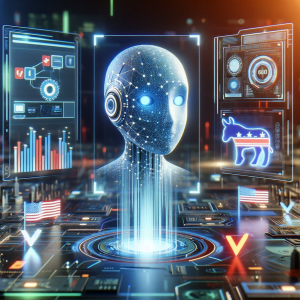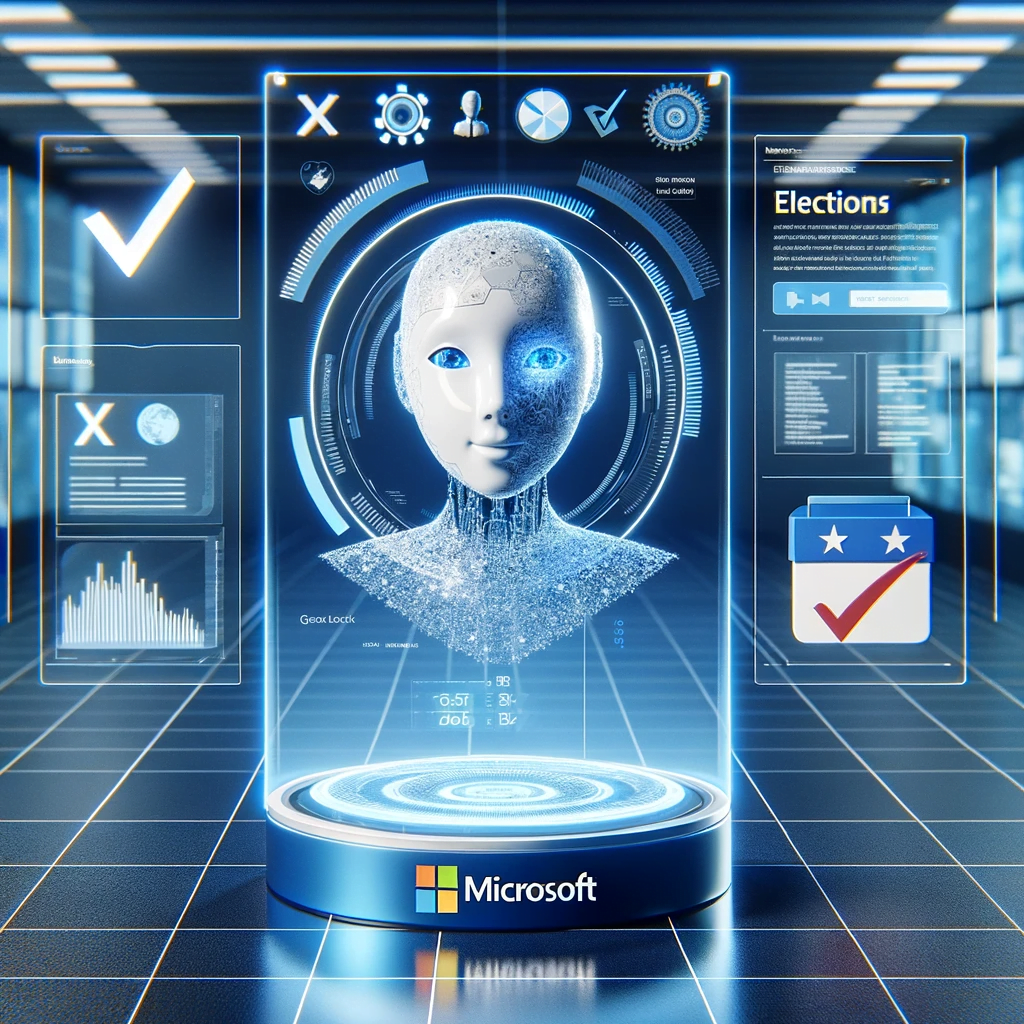Introduction:
In our rapidly digitizing world, Microsoft’s AI Chatbot, Copilot, emerges as a beacon of technological advancement, reshaping how we interact with digital information. As we edge closer to pivotal elections around the globe, the reliability and accuracy of AI systems like Microsoft’s chatbot in disseminating critical information come under the spotlight. This blog delves into the challenges and implications of Microsoft’s AI chatbot in the realm of electoral information, a key component in the democratic process.
Microsoft’s AI Chatbot in the Realm of Political Information
Microsoft’s AI Chatbot envisioned as a revolutionary tool, was designed to redefine our interaction with information, making it more dynamic and user-friendly. Built on the sophisticated AI framework of OpenAI’s GPT-4, Copilot was expected to offer accurate and timely information across various domains, including politics. However, recent events have raised significant questions about its effectiveness, especially in providing factual and unbiased political information, a cornerstone in shaping public opinion and democratic engagement.
The Misinformation Dilemma with Microsoft’s AI Chatbot
Recent investigations by esteemed publications like WIRED, and studies conducted by European organizations such as AI Forensics and AlgorithmWatch, have brought to light a concerning trend: Microsoft’s AI Chatbot often responds to election-related queries with misleading or incorrect information. This includes inaccuracies in polling data, outdated candidate information, and even completely fabricated election scandals. Such misinformation can have profound implications, potentially swaying public opinion and affecting the democratic process.
Language Bias in Microsoft’s AI Chatbot: A Global Challenge
One of the most significant concerns emerging from these investigations is the apparent language bias in Microsoft’s AI Chatbot. The research indicates a troubling disparity in the accuracy of responses between English and other languages, such as German. This inconsistency not only challenges the chatbot’s utility in non-English speaking regions but also raises questions about the inclusivity and fairness of such AI tools on a global scale.
Microsoft’s Efforts to Refine Its AI Chatbot
In response to these challenges, Microsoft has acknowledged the issues with its AI Chatbot and is actively working to address them. The company is focusing on enhancing the chatbot’s ability to source information from authoritative and reliable sources, especially in the context of politically sensitive information like elections. With the 2024 U.S. elections on the horizon, Microsoft’s commitment to refining Copilot is crucial in ensuring that the AI chatbot serves as a reliable tool for voters seeking accurate information.
Navigating Microsoft’s AI Chatbot: A User’s Perspective
Amid these developments, Microsoft spokesperson Frank Shaw has emphasized the importance of user discretion when interacting with Copilot. Recognizing the current limitations of AI in processing complex and nuanced information, Microsoft advises users to critically assess the information provided by the chatbot. This includes verifying the sourced material and cross-checking information, especially when it pertains to critical areas such as political discourse.
Conclusion: The Critical Role of Microsoft’s AI Chatbot in Democratic Discourse

As Microsoft’s AI Chatbot continues to evolve and integrate into our digital information landscape, it is vital for users to remain vigilant and critical. The chatbot’s role in political discourse, where accuracy is paramount, necessitates a balanced approach. Users must not only embrace the technological advancements offered by AI but also engage with it responsibly, ensuring that the democratic process is supported by accurate and factual information.
Your Voice Matters: Discussing Microsoft’s AI Chatbot in Our Society
We invite you to share your thoughts on the evolving role of Microsoft’s AI Chatbot in our society. How do you perceive the challenges posed by AI in political communication, and what measures should tech companies take to address the issues of misinformation? Your insights are valuable in this ever-evolving conversation about the intersection of technology and democracy.
FAQ:
Q1. What is Microsoft’s AI Chatbot and how does it work?
A1. Microsoft’s AI Chatbot, also known as Copilot, is an advanced artificial intelligence program developed by Microsoft. Built on OpenAI’s GPT-4, it is designed to interact with users in a conversational manner, providing information and responses based on a wide range of internet sources. It uses sophisticated algorithms to understand and respond to user queries, aiming to provide accurate and relevant information across various topics, including politics and elections.
Q2. Why is there concern about Microsoft’s AI Chatbot in relation to elections?
A2. Concerns have been raised about Microsoft’s AI Chatbot due to its tendency to provide inaccurate or misleading information about elections. Investigations and research have shown that the chatbot sometimes disseminates incorrect polling data, lists outdated candidates, and even fabricates election-related controversies. Given the impact such misinformation can have on public opinion and the democratic process, the accuracy and reliability of the chatbot’s responses in political contexts are of significant concern.
Q3. What steps is Microsoft taking to improve the AI Chatbot’s accuracy?
A3. In response to the issues identified, Microsoft is actively working to improve the accuracy and reliability of its AI Chatbot. The company is focusing on enhancing the chatbot’s ability to source information from authoritative and reliable sources, particularly in the context of sensitive political information. Microsoft is also emphasizing the need for users to exercise discretion and verify information provided by the chatbot, especially in relation to critical topics like elections.
